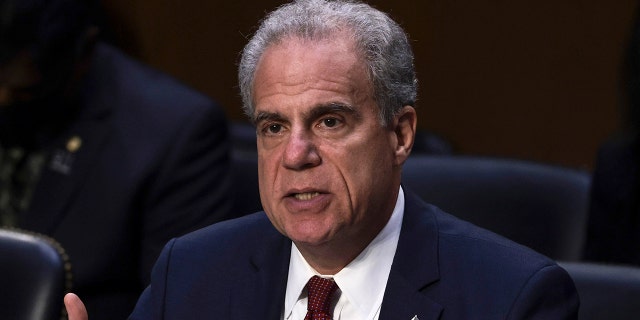House Judiciary Committee Chairman Jim Jordan argued Thursday that the FBI should no longer play any role in looking into American citizens who get flagged during investigations into non-U.S. citizens, in light of evidence that a substantial portion of these FBI “queries” are made in error.
The subcommittee on Crime and Federal Government Surveillance held a hearing on how to fix the Foreign Intelligence Surveillance Act (FISA), and how this law “designed to protect Americans has been weaponized against them.”
Section 702 of FISA allows the government to conduct targeted surveillance of non-U.S. persons located abroad to acquire foreign intelligence information. When U.S. citizens are flagged as part of these investigations, the FBI takes over the process of querying them for possible security reasons.
However, both Republicans and Democrats used the hearing to note that these FBI queries have become a problem. For example, Ranking Member Jerry Nadler, D-N.Y., said that last year alone, the FBI used “personal identifiers” to query U.S. citizens “nearly 3.4 million times,” while other lawmakers pointed out that up to 30% of those queries were conducted “in error.”
FLASHBACK: JIM JORDAN’S BIG IDEA: ENACT FISA REFORM TO FIX ‘SYSTEM-WIDE’ PROBLEM
House Judiciary Committee Chairman Jim Jordan, R-Ohio. (Tom Williams/CQ-Roll Call, Inc via Getty Images)
Nadler also said U.S. intelligence agencies have “kept us largely in the dark as to how many Americans’ communications are incidentally collected every year,” and warned that collection of that data “should give anyone pause.”
“They’re made available to agencies like the FBI, who can search the 702 database for our communications for purposes having nothing to do with national security,” Nadler said, adding that these queries are “neither hypothetical nor rare.”
In the subcommittee hearing, Jordan questioned Justice Department Inspector General Michael Horowitz and other witnesses about how many Americans have been queried as part of 702 investigations into non-U.S. citizens, but they said they had no answer.
“And then approximately 10,000 people at the Justice Department have the ability to query this incidental collection database without any probable cause,” Jordan said. “And we know, as Ranking Member Nadler said earlier, there were 3.4 million queries of this database and 30% of those were in error.”
HOUSE INTEL UNVEILS BIPARTISAN GROUP TO OVERSEE FISA SECTION 702 REFORM, END ‘EGREGIOUS ABUSES’
House Judiciary Committee Ranking Member Jerry Nadler, D-N.Y. (AP Photo/J. Scott Applewhite, File)
Jordan said a “simple” solution would be to “require probable cause if you’re going to query this database on American citizens,” something that witness Sharon Franklin, the chair of the U.S. Privacy and Civil Liberties Oversight Board, said she supported.
“How about if we just get the FBI out of the business altogether—what if the FBI can’t query this database? ” Jordan asked. “If the FBI can’t query this database on American citizens?”
Jordan did not specifically propose an alternative entity for vetting queries into U.S. citizens, and witnesses did not offer any ideas either. Another witness, Beth Williams, a member of the U.S. Privacy and Civil Liberties Oversight Board, warned that some entity authorized to look into Americans would still be needed.
“The question is, if the FBI is not doing these searches to figure out who in the U.S. is talking to terrorists abroad, who is going to do it?” Williams asked. She warned there is a “risk” of turning the CIA or NSA “who look outward inward on Americans.”
WATCHDOG SAYS FBI VIOLATIONS WITH FISA WARRANTS WENT BEYOND RUSSIA PROBE

Justice Department Inspector General Michael Horowitz. (Photo by Anna Moneymaker/Getty Images)
Jordan stressed that the issue of how 702 investigations can bleed into queries on American citizens should be cleaned up as Congress considers extending 702 authority after it expires this year.
“702 is up for reauthorization—this is the most important thing we’re probably going to do this Congress,” Jordan said. “Get this right—and not let this continue with the data you all understand.”
“That’s our focus, should be our focus, and the fact that I think we can get bipartisan—agreement here on protecting those liberties,” he added.
In December 2022, the Office of the Director of National Intelligence declassified a 2021 report that detailed FISA abuses. The report stated that the FBI, under Section 702, searched data for an unnamed member of Congress and local political organizations to determine if they had ties to foreign intelligence.

Former Trump campaign adviser Carter Page.
During a House Intelligence Committee hearing earlier this year, Rep. Darin LaHood said he believed that he was the unnamed lawmaker unlawfully queried by the FBI.
CLICK HERE TO GET THE FOX NEWS APP
FISA reform became a priority for both Republicans and Democrats following a 2019 review from Horowitz. That review found significant inaccuracies and omissions by the FBI in a FISA warrant application to surveil former Trump campaign adviser Carter Page in 2016, and has proposed significant reforms to FISA Section 702 since.